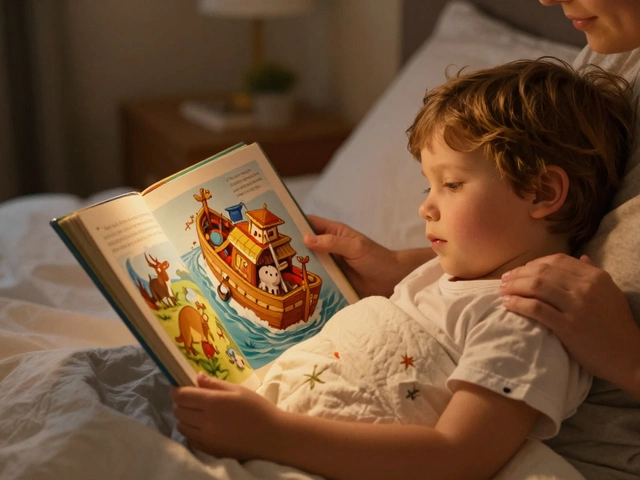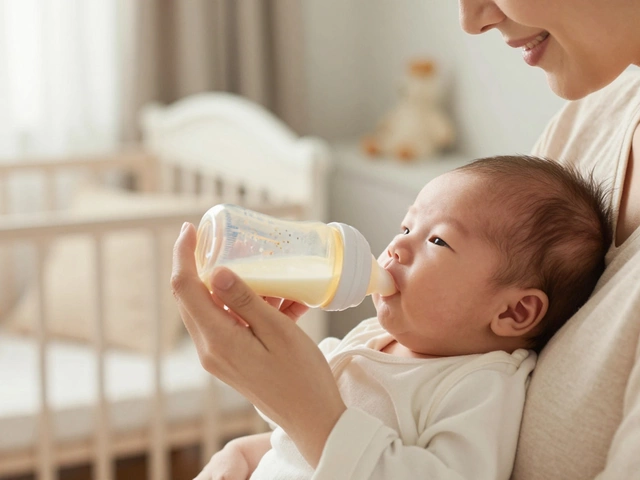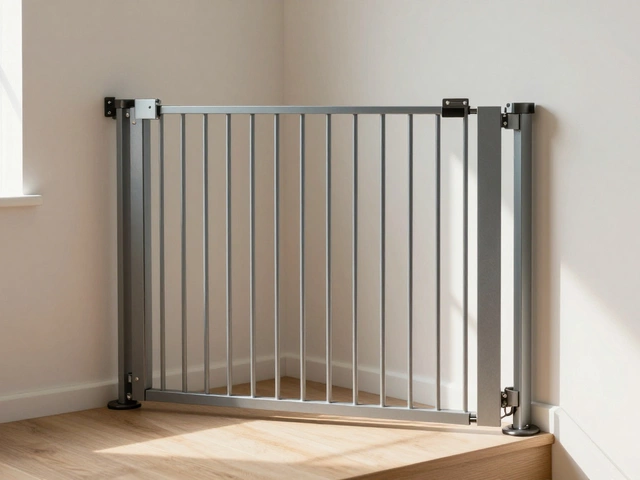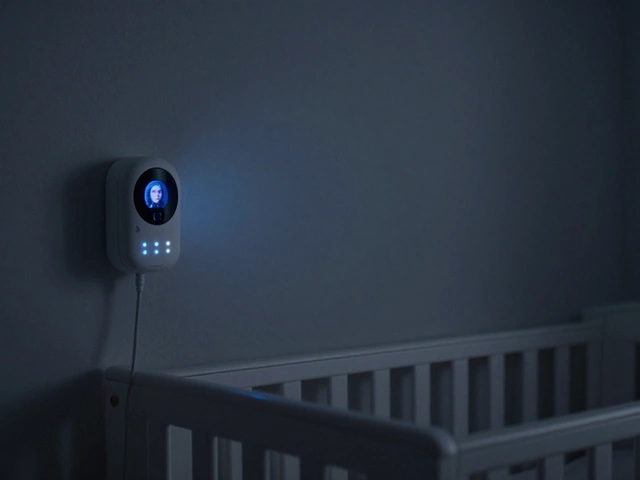
Potty training feels like one of those parenting benchmarks everyone has an opinion about. Walk into any daycare or playground and you'll hear whispers: "Is your kid potty trained yet?" The truth? A lot of 3-year-olds are still working on it, and that's perfectly normal.
Some kids figure it out by their third birthday—but just as many need a little more time. Studies show about half of kids are reliably potty trained during the day by age three. Nighttime is a whole different game, with many children taking months or even years longer to stay dry through the night.
If you're stressing about accidents or comparing your child to others, pause for a second. Every child has their own pace. What actually helps? Consistency, patience, and focusing less on the calendar and more on your toddler's signs of readiness.
- The Real Numbers: How Many 3 Year Olds Are Potty Trained?
- Why Potty Training Takes Longer for Some Kids
- Tips for Potty Training at Three—And Beyond
- Handling Nighttime: Bedwetting and Toddler Beds
- Supporting Your Child Without Pressure
The Real Numbers: How Many 3 Year Olds Are Potty Trained?
Parents love to compare when their kids master the potty, but actual stats cut through the bragging. If you’re looking for numbers, here’s what the experts and surveys say: not all 3-year-olds cross the finish line at the same time.
A study published in Pediatrics journal found that out of kids aged 36 months—so, right at their third birthday—only about 50 to 60% are fully daytime potty trained. This means half of kids still have accidents or are in diapers during the day at age three.
"There is no magic age for potty training. While social pressure makes many parents anxious, most children are developmentally ready somewhere between 2.5 and 3.5 years old." — Dr. Tanya Altmann, pediatrician
Nighttime dryness is even less common at this age. The American Academy of Pediatrics reports that it’s completely normal for kids to wet the bed off and on until age 5 or 6.
| Age | Daytime Potty Trained (%) | Nighttime Dry (%) |
|---|---|---|
| 2 Years | 10% | 4% |
| 3 Years | 50-60% | 15% |
| 4 Years | 80% | 40% |
Seeing these numbers laid out gives a reality check—every toddler will hit this milestone at their own pace. If your 3-year-old is still learning, you’re right on schedule with half of all families out there.
Why Potty Training Takes Longer for Some Kids
Ever notice how two kids the same age can be on totally different schedules when it comes to potty training? There isn’t one magic age or method. Lots of factors can slow down or speed up the process—and most aren’t anything to stress about.
One big factor is physical readiness. Some kids’ bodies just aren’t ready to hold pee or poop for long stretches by age three. Others might not recognize the urge until it’s almost too late. Another reason: personality. More cautious or strong-willed kids might resist change, while laid-back kids go along with whatever. You also have things like older siblings and peer pressure—some kids want to copy big brother, others find the whole thing embarrassing.
Health matters too. Chronic constipation, for example, can make kids anxious about using the toilet. Kids who’ve had changes in routine—new baby, moving, or starting daycare—can also hit the pause button.
| Factor | How It Affects Potty Training |
|---|---|
| Physical maturity | Some kids just aren’t able to control their bladder/bowel consistently until closer to age 4. |
| Temperament | Strong-willed kids might resist, while easygoing kids may follow along faster. |
| Medical reasons | Constipation, urinary tract issues, or developmental delays can set things back. |
| Big life changes | Moving, starting preschool, or having a new sibling can cause regression. |
| Parental expectations | Feeling pressured can make some kids dig in their heels and delay even more. |
So, if your toddler isn’t trained yet, don’t panic. Most doctors say you shouldn’t even begin unless your child is showing signs they’re ready, like staying dry for stretches or hiding to poop. It’s not a race—going at their pace usually means less frustration for everyone.
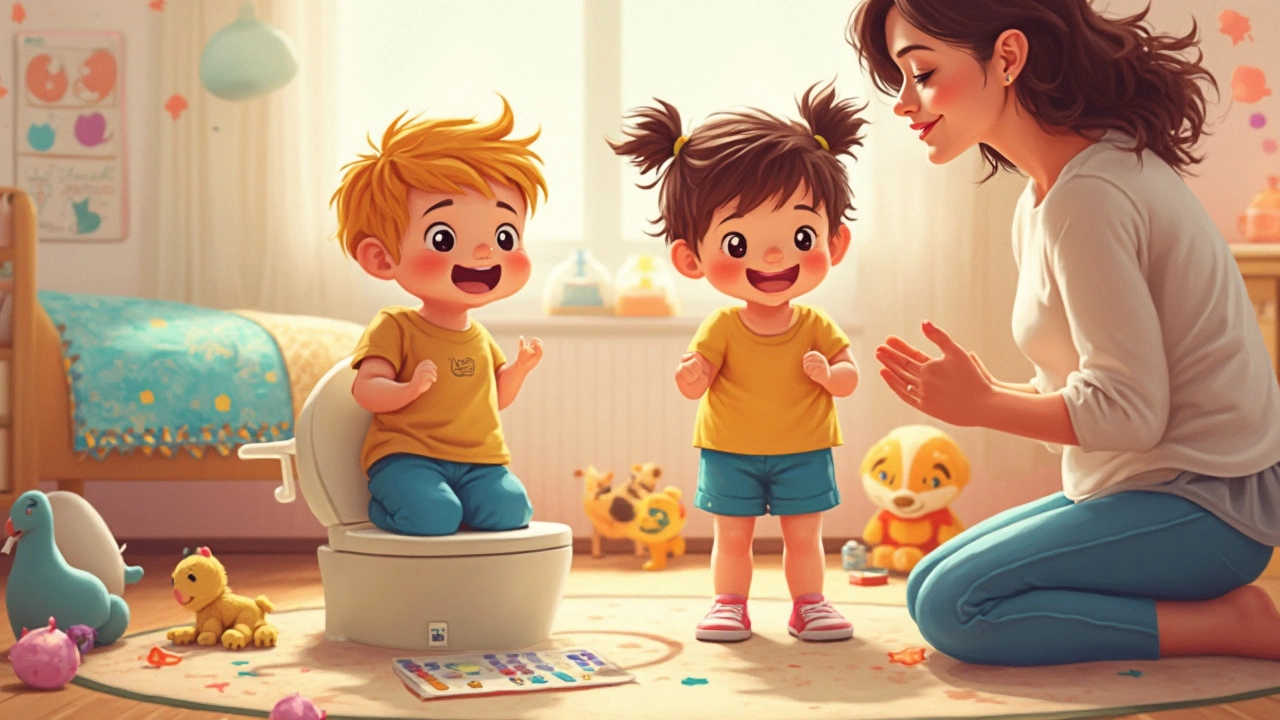
Tips for Potty Training at Three—And Beyond
Every family’s journey with potty training looks a little different, but there are a few smart moves that can save your sanity this year. Three-year-olds have strong opinions, so expect a mix of "I can do it!" and total disinterest.
Real talk: most experts say pushing before your child is ready just creates more stress, not more progress. Watch for signs like your toddler telling you they need to go, staying dry for two hours, or being able to pull their pants down. If you see these, you’re in a good spot to start.
- Make it routine: Take them to the toilet after meals, before naps, and right before bed. Remove the guesswork. The more predictable, the easier it gets.
- Praise real effort: Celebrate when they try, not just when they succeed. A high five truly goes a long way at this age.
- Stay chill about accidents: Even kids who nailed it for weeks will suddenly have a setback, especially if there’s stress or a change at home. Clean up and move on without drama.
- Let them choose: Let your child pick their own underwear or potty seat. When kids help decide, they're more invested.
- Use books and stories: Reading silly potty books or making up your own routine gives kids something fun to look forward to, and normalizes the topic.
One thing that actually helps: set a timer for gentle reminders, but skip hovering. Toddlers can get embarrassed if grown-ups are constantly checking. And if nothing seems to work, take a short break and try again later. Even pediatricians agree—no kid heads off to college in diapers.
Handling Nighttime: Bedwetting and Toddler Beds
Let's talk about nighttime potty training, because it really is a different beast compared to the daytime. So many parents feel stuck when their 3-year-old keeps wetting the bed even though they're using the toilet just fine when awake. This happens to loads of kids! In fact, according to the American Academy of Pediatrics, up to 40% of 3-year-olds still have trouble staying dry all night.
“Nighttime dryness often comes months or years after daytime toilet training. Each child’s body develops bladder control at a unique pace.” - American Academy of Pediatrics
There's a reason for this: at night, kids' bodies are still figuring out how to hold in pee for hours while they're totally relaxed. Plus, that hormone (antidiuretic hormone) that tells the kidneys to slow down urine at night might not ramp up until a child is 5, 6, or even older.
Now, toss in a toddler bed and you get another challenge—your little one can get up by themselves, but sometimes they just sleep right through the urge or can’t find the bathroom in time. If you’re worrying about your kiddo’s sheets, you’re not alone. Here’s how common nighttime wetting is:
| Age | % Still Wetting Bed at Night |
|---|---|
| 3 years old | 40% |
| 4 years old | 30% |
| 5 years old | 15% |
So what can you do to make life easier? Try these practical tips:
- Use a waterproof mattress cover. You’ll thank yourself in the morning.
- Keep a stack of clean sheets and pajamas handy for quick changes during the night.
- Avoid big drinks right before bedtime. If your kiddo complains, offer sips instead of a full cup.
- Walk your child to the bathroom right before bed every night, even if they say they don’t have to go.
- Try a soft night light in the hall or bathroom. It helps little ones find their way if they wake up needing to go.
Some parents use potty training alarms or rewards charts, but honestly—they’re not magic cures and don’t work for everyone. If you’re frustrated, remember: potty training really is a marathon, not a sprint. Most kids grow out of bedwetting in time, no matter what you try.
If your child is over six and still wetting the bed, or if they suddenly start after months of staying dry, it’s a good idea to talk with your pediatrician. For most toddlers, though, patience and a few basic tools make this stage way less stressful.

Supporting Your Child Without Pressure
Trying to rush potty training just piles on stress for both you and your kid. Loads of child development experts point out that positive support—not pressure—is what works best. The American Academy of Pediatrics actually says pushing too hard can backfire, making accidents and resistance way more likely.
“Children learn toileting skills best when they are motivated and not forced. Pressure or shaming can lead to delays and frustration for everyone involved.”
— American Academy of Pediatrics
Here's what that looks like in real life. First, keep praise specific. Instead of just saying, “Good job,” try, “You remembered to tell me you needed to go!” Small celebrations work wonders, but skip rewards that feel like bribes. A high-five means a lot at this age.
- Let your child choose their own underwear—they love the feeling of control.
- Never scold or punish for accidents. Clean up together and move on.
- Stay calm if progress stalls. Regression is common, especially after big changes like welcoming a new sibling or moving.
- Read children’s books about potty training together. Relatable stories can help nervous toddlers feel normal.
Kids pick up on your mood. If you treat potty learning like just another part of growing up, not a race, they’ll likely relax too. Most kids develop full bladder control between ages 3 and 4, but a study published in Pediatrics found about 25% of four-year-olds are still having daytime accidents at least once a week. You’re not behind—and neither is your child.
| Age | Daytime Trained (%) | Nighttime Trained (%) |
|---|---|---|
| 2 years | 22% | 11% |
| 3 years | 60% | 36% |
| 4 years | 86% | 60% |
Remember, you can build your child's confidence way more with patience and hugs than pressure. If you’re ever in doubt, talk with your pediatrician, especially if your child is over 4 and still showing no potty interest or having frequent constipation. Every milestone gets easier when you know you’re not alone.


